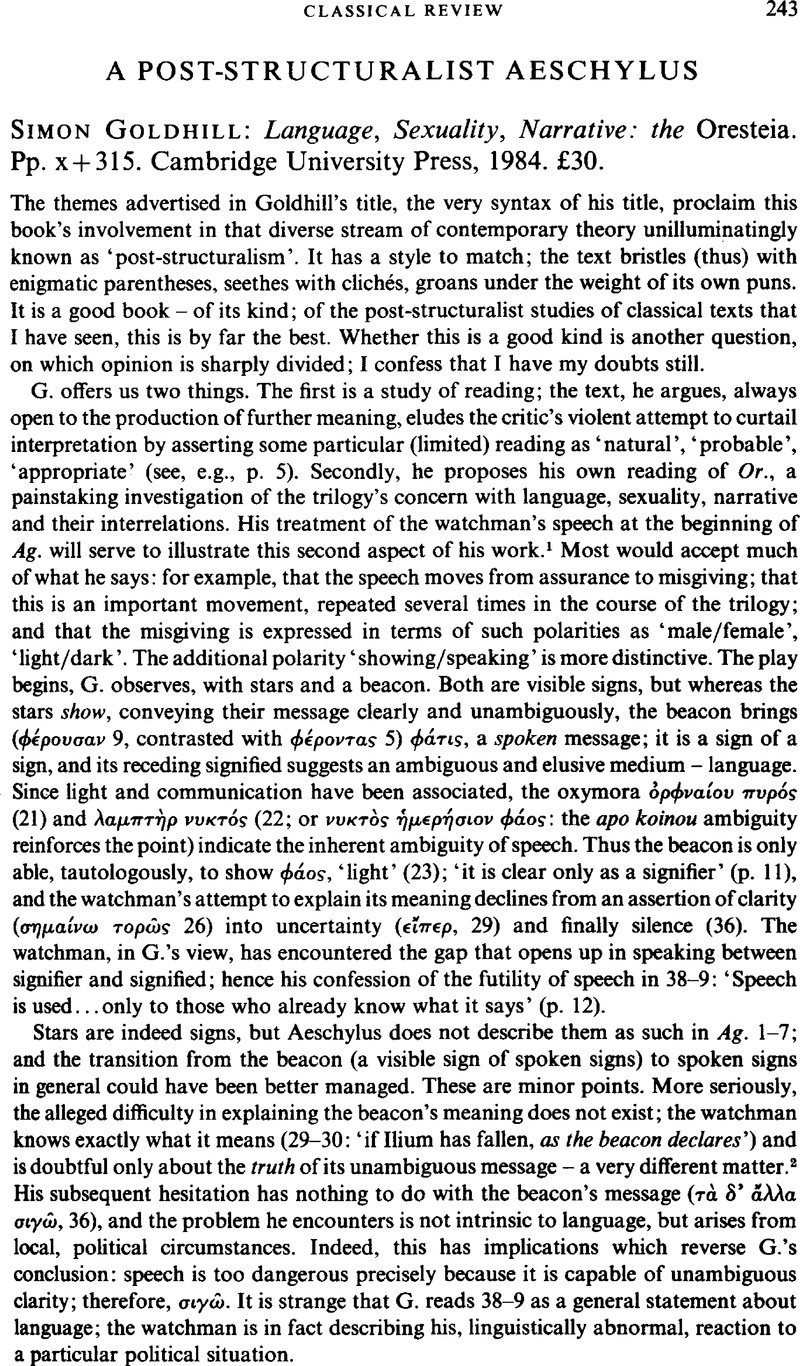No CrossRef data available.
Published online by Cambridge University Press: 16 February 2009

1 See also his note on τ⋯λος JHS 104 (1984), 169–76.
2 In Saussurean terms, the signified of ‘the sack of Troy’ is not the sack of Troy, but the concept of the sack of Troy. In general, G. seems unclear about the distinctions between signified and referent, and between reference and truth.
3 On p. 11 he tells us what ‘the natural [sic] syntagmatic force’ of a phrase ‘leads us’ to do.
4 P. 6: ‘who can read…without registering… ?’ Many have read without registering what G. registers.
5 If, when I next visit Cambridge, I ask the way to King's College, it will not expedite my arrival if I treat the reply as illustrating the free play of signifiers; but if I impose on it a ‘partial’ reading – not ‘arbitrarily’, as G. might claim, but according to a mode of reading motivated by the nature of my interest in the transaction – then the reply might well prove helpful.
6 And so teleologically (invoking an end towards which or purpose for which one is reading). G. has a good deal of trouble with the concept of teleology; this may be why he makes such liberal use of terms like ‘arbitrary’.
7 G.'s disclaimer, ‘I have certainly made no attempt to fit the Oresteia into any prescribed or prescribing framework of dogma’ (p. 4), is likely to strike those who do not share his position (those of us, for example, who suspect that the whole business of‘signifier’ and ‘signified’ reflects a basically flawed way of thinking about language) as, at the very least, in need of qualification.
8 That is my reading of Ll-J.'s intentions, at least; it is true that other meanings are opened up by the ‘play of language’ – or, if we subject that phrase to the question of the subject, by G.'s play with language.
9 This is evident on p. 203: ‘criticism (reading) even when it attempts to mask itself as historical research…’ – why ‘mask’? Some reading is (in part) historical research; and since historical research by its very nature offers only probable conclusions, the observation that reading ‘even’ then deals only in ‘probabilities’ is not obviously as exciting as G. finds it.
10 ‘The apparent tautology…of defending the need for the presence of the concept of personality by an appeal to its already being there…’ – what is already where? (One might say, e.g., that the critic needs a knowledge of Greek grammar because there are Greek sentences in the text; no tautology is apparent.)
11 It is particularly valuable that G. devotes his longest chapter to Ch., a play under-appreciated and under-discussed, as he says (p. 207).